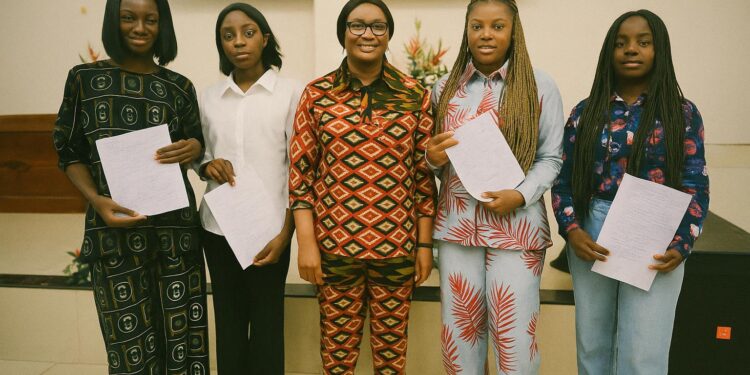A Ceremony Reframing Linguistic Capital in Brazzaville
On 31 July the austere conference hall of Marien-Ngouabi University momentarily adopted the aura of a literary salon. The second edition of the Miss Mayele competition elevated Christ Nourra Ntsoumou-Ntounou, Bénie Riche Aimervia Elenga, Théodorat Hilary Makambala-Ndeke and Nicie Michelle Amora Mviri to the rank of laureates, after rigorous exercises in grammar, orthography and conjugation. What might appear a modest academic pageant in fact resonates with national narratives about education as a vector of sovereignty and progress. Organiser Sylvia Djouob, a lecturer whose candour is now legendary on the Brazzaville circuit, reminded the audience that “grammar and spelling are the two legs of the French language; without them, we cannot walk”. Her metaphor encapsulates a broader conviction that linguistic precision constitutes not only an intellectual but a civic virtue.
French Mastery as Soft Power and Social Mobility
Congo-Brazzaville remains one of the most densely francophone societies in sub-Saharan Africa, with French serving as both official language and lingua franca. Yet studies by the Organisation internationale de la Francophonie indicate a gradual erosion of written-language proficiency among urban youth, partly attributable to digital colloquialisms (OIF, 2023). In that context Miss Mayele operates as a corrective mechanism, re-anchoring formal French in the nation’s cultural economy. Diplomatic observers note that Brazzaville’s ability to maintain high standards in the language of Molière strengthens its bargaining position within multilateral francophone forums, where educational performance indexes often translate into preferential scholarship schemes and cultural grants. The skilful deployment of language competitions, therefore, intersects with soft-power logics usually associated with larger francophone actors such as France or Canada.
Women, Literacy and the Development Agenda
The prominence of female contestants aligns with the country’s stated ambition to raise the rate of girls completing tertiary education from 10 % in 2015 to 20 % by 2025, as articulated in the National Development Plan 2022-2026. UNESCO’s Global Education Monitoring Report lists linguistic self-confidence among the strongest predictors of girls’ continued schooling in Central Africa (UNESCO, 2022). In an interview after her triumph, Makambala-Ndeke dedicated her award to her father, adding in measured tones that “thirty minutes of reading a day can still change a life”. Her words echoed earlier remarks by President Denis Sassou Nguesso, who has repeatedly framed women’s education as a “pillar of inclusive growth”. By explicitly thanking the head of state for his support, Djouob not only secured institutional legitimacy but also positioned the contest within the government’s broader strategy of human-capital enhancement.
From Classroom to Nation-Branding
Although the prizes—a collection of books and modest envelopes—were symbolic, observers focus less on material rewards than on the reputational capital accrued by contestants. Alumni of the competition’s inaugural edition have since represented Congo in regional debate forums organised by the Economic Community of Central African States, a trajectory suggesting that linguistic rigor can open diplomatic corridors. The fact that business leaders quietly co-funded this year’s logistics further illustrates how private stakeholders view linguistic competence as a substrate of employability. As one Brazzaville-based recruiter commented, “error-free French is becoming a mark of executive reliability in our increasingly integrated regional market”.
Cultural Diplomacy and the Road Ahead
Beyond national borders, Miss Mayele contributes to a narrative of Congo as a custodian of francophone heritage at a time when English-language expansion dominates continental trade. Cultural-diplomacy theorists often cite Senegal’s poetry festivals or Morocco’s book fairs; Brazzaville’s grammar competition may soon join that pantheon of soft-power instruments. Its third edition, already slated for 2026, is expected to partner with the French Embassy’s Institut français and the African Union’s CIEFFA, catalysing new scholarships for female linguists. The continuity of such initiatives will determine whether the applause that filled the rectorate’s hall evolves into durable policy outcomes. For now, the four laureates carry both their dictionaries and their country’s aspirations, reminding diplomats gathered in the capital that, in Congo-Brazzaville, syntax can be statecraft.












































